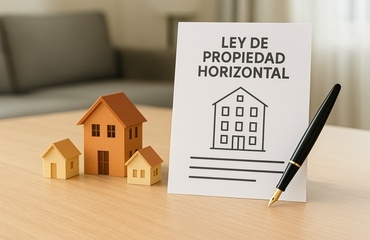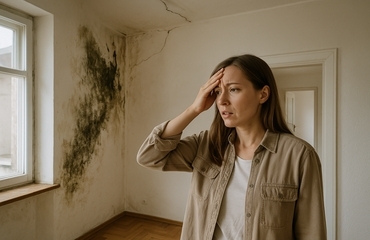
Renting vs buying: which option is better for you?
Deciding between renting or buying a property is one of the most important decisions many people face at some point in their lives. The desire to become independent and start a new chapter is common among the younger population.
Both renting and buying have advantages and disadvantages, and what turns out to be the best choice for one person is not always the best choice for another. That is why it is necessary to analyze what pros and cons each option has before doing anything, since analyzing what each alternative brings can be vital to be clear about what pays off more.
Advantages and disadvantages of buying a property
Owning a home has many advantages. Here are some of the benefits of homeownership:
Building equity . One of the main benefits of buying property is that, over time, your home can increase in value, allowing you to build equity. Each monthly mortgage payment reduces the loan balance, bringing you closer to full homeownership.
Provides long-term stability . Buying a home gives you stability, both in terms of residency and costs. Once you buy a property, you can stay in it for years, without fear that your landlord will decide not to renew your lease. In addition, with a fixed-rate mortgage, the monthly payments will not change over time, giving you greater financial predictability.
Freedom to equip and furnish . As a landlord, you have the freedom to make renovations and improvements to the property to your liking, allowing you to tailor the home to your needs and lifestyle. This freedom is not always possible when you rent.
Tax benefits . In many countries, homeowners can take advantage of tax deductions on mortgage interest and property taxes, which can reduce the annual tax burden.
High initial cost. Buying a home requires a significant initial investment. Upfront costs include the down payment (which is typically 10% to 20% of the home price), plus closing costs, taxes and other associated costs. This can be a barrier to entry for many people.
Less flexibility if you want to change. Being a landlord means you are tied to a specific location. If your circumstances change, such as a new job offer in another city, moving can be more complicated and costly than if you were renting.
Maintenance is on you. When you buy a home, all expenses related to maintenance and repairs fall on you. From plumbing problems to roof maintenance, any repairs are your responsibility, which can mean considerable expense over time.
The home could depreciate in value. Although properties tend to increase in value over the long term, this is not always the case. Fluctuations in the real estate market can negatively affect the value of your property, especially if you bought at a time when prices were high. If you need to sell in a down market, you could lose money.
Advantages and
disadvantages of renting
Renting has its pros and cons. And they go far
beyond the price of the monthly rent, so you should know them before deciding
on one option or another. These are the main advantages of renting:
• Less financial responsibility. When renting, you don't have to worry about home maintenance or major repairs. If something breaks, it is usually the landlord's responsibility to fix it. This can translate into fewer unexpected expenses and fewer headaches.
• Lower upfront costs. Unlike buying, renting does not require large upfront investments. Although a security deposit is usually required, it is usually much less than the down payment for a mortgage. In addition, you don't have to pay closing costs, property taxes or homeowner's insurance.
• Ability to live in areas inaccessible to buy. In many cities, property prices can be prohibitively expensive in certain areas, but renting in those areas can be more affordable. This allows you to enjoy the benefits of living in a neighborhood that would otherwise be out of reach if you had to buy property there.
But be aware of this set of disadvantages,
which include:
• You expose yourself to upward renewals. Renting means you are subject to changes in the rental market. The landlord can raise the rent at the end of the lease, which can affect your monthly budget. This adds financial uncertainty that you don't have with a fixed-rate mortgage.
• Less long-term stability. As a tenant, your tenure in the property is dependent on the landlord. If he decides to sell the property, change tenants or not renew the lease, you may be forced to move. This lack of stability can be a drawback for those looking to settle in a community.
• Fewer options to furnish it the way you want. In most leases, there are restrictions on the modifications you can make to the home. This means you can't completely customize it to your liking, which can be limiting.
Discover the best apartments and houses for rent in Barcelona with HOFFMANN if it is
clear to you that it pays more to opt for renting a house.
Issues to consider when
deciding whether to rent or buy
The decision between renting or buying depends
on a variety of personal and financial factors. Some critical points to
consider are these:
• Job and personal stability. Buying a home makes more sense if you plan to stay in one area for several years. This will allow you to offset the upfront costs and benefit from the possible increase in property value. If your job situation is uncertain or you plan to move soon, renting will give you the flexibility you need.
• Real estate market conditions. The real estate market varies by location and time. In some cases, home prices may be inflated, which may not make buying a good short-term investment. On the other hand, in a down market, you could find great opportunities. It is also important to analyze mortgage interest rates, which can significantly influence your ability to buy.











